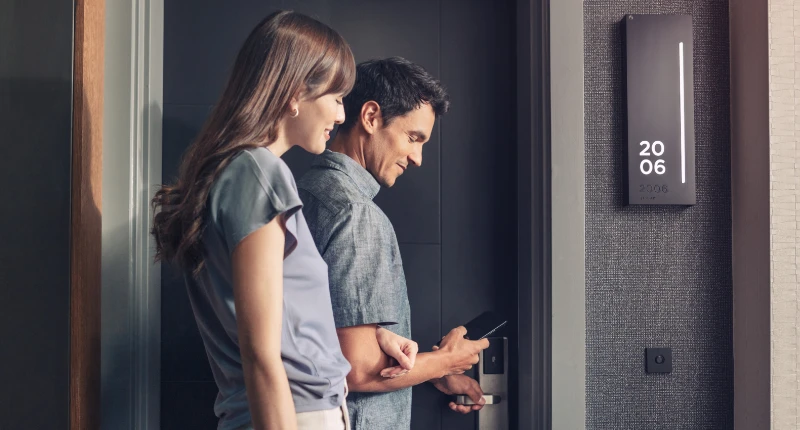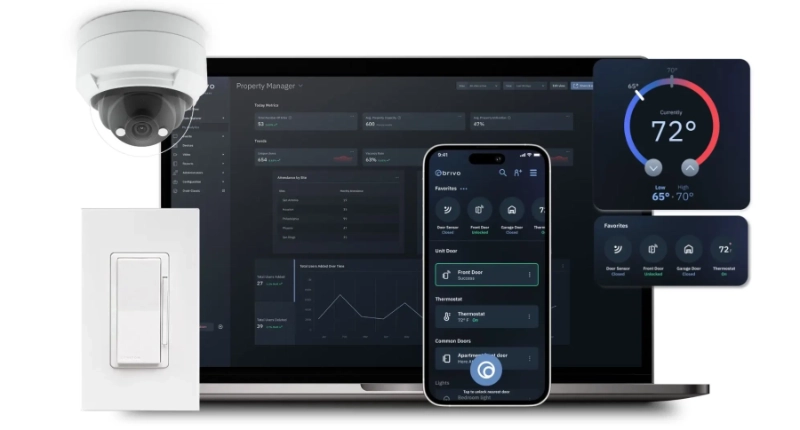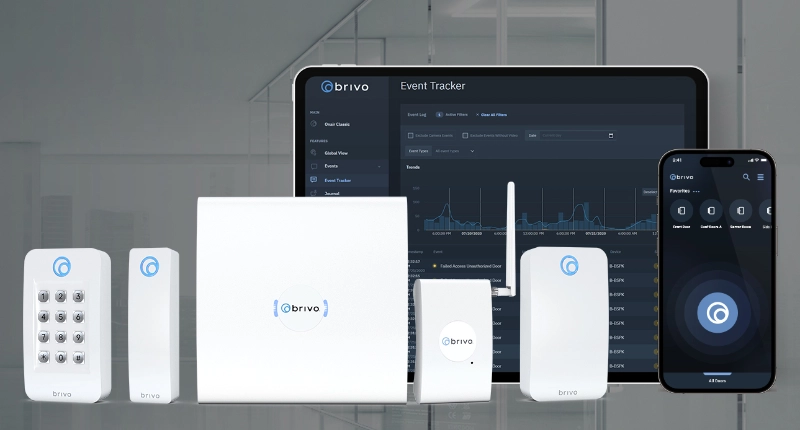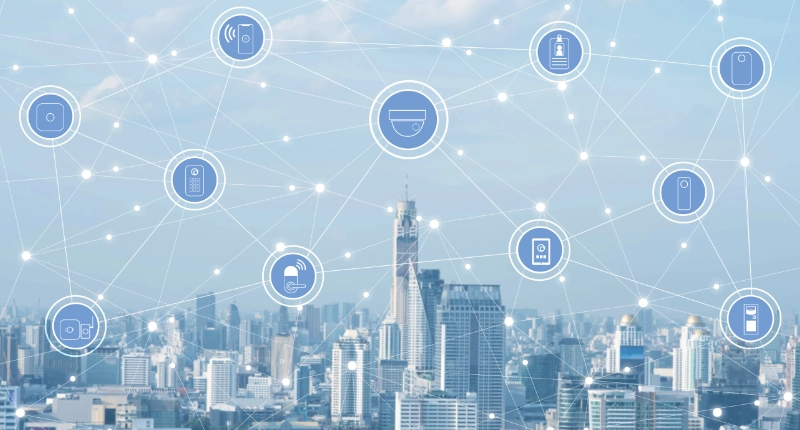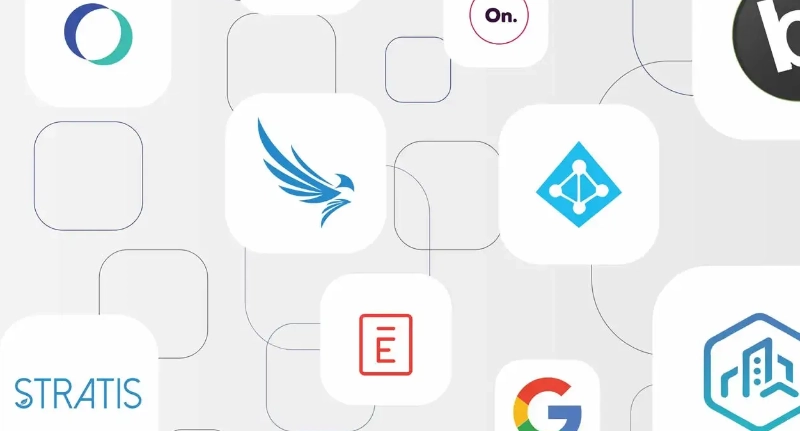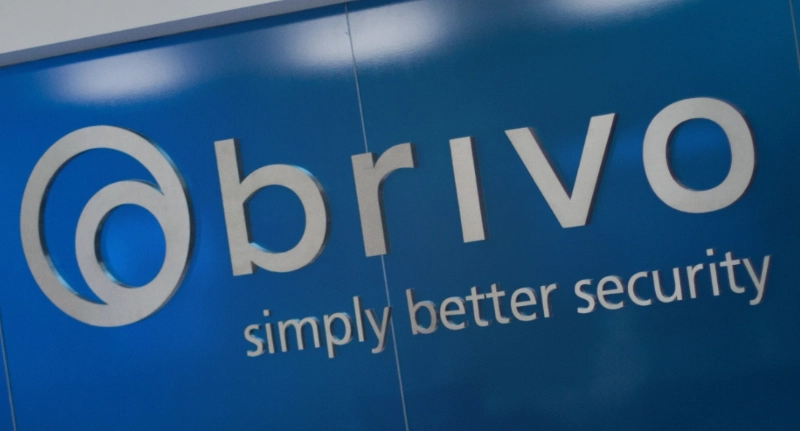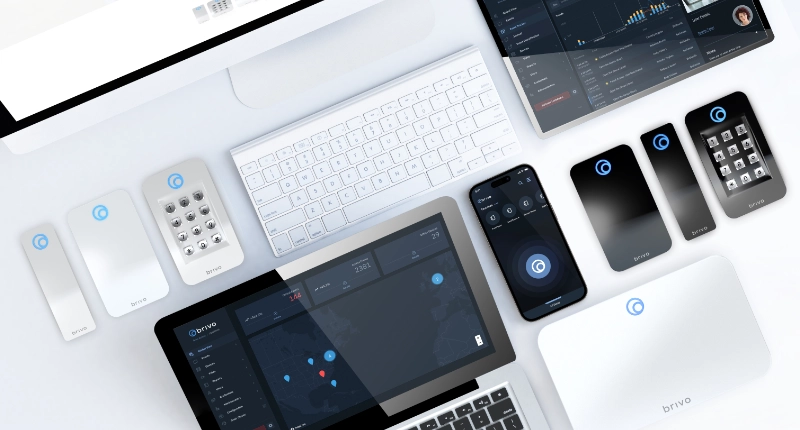In a recent episode of the Talk LP News podcast, host Amber Bradley sat down with Aaron Wang, Senior Global Accounts Manager at Brivo, to dive into the current state of physical security in retail. Their conversation went beyond simple solutions, exploring the limitations of disconnected “patchwork” security systems and highlighting the benefits of a holistic, cloud-based approach.
Wang, a veteran of both retail management and security integration, offered a unique perspective on why many retailers are facing a security crisis, often without even realizing it. The discussion covered everything from the daily challenges of loss prevention teams to the strategic advantages of a truly integrated security ecosystem.
Here’s a recap of the key takeaways from their discussion.
Q: What are the biggest challenges retailers face when their security systems are not standardized?
“When you have to learn a hundred different VMSs and a hundred different access control systems, you’re only going to know the surface level of what these systems can do, “said Wang.
When retailers use a patchwork of different systems across stores and regions, LP teams can’t become experts in any of them. They only have a surface-level understanding, which makes it difficult to fully leverage the technology and can create security blind spots. Standardizing on a single platform allows teams to dive deeper into the system’s capabilities and get more value from their security investments.
The most shocking example of this inefficiency is the common practice of manual video review. Wang shared a story from his past where he had to sit with an LP manager, manually scrubbing through hours of video footage at high speed, just to find the few seconds of a specific access event. This time-consuming, tedious, and often unreliable process is still common today, even with the rise of modern technology.
Q: How does having a connected system, like the Brivo platform, improve the investigation process for loss prevention teams?
Brivo’s cloud-based platform offers a direct solution to this problem by bringing all physical security components into a single, unified view. This is where the platform’s “genius” really shines. Wang introduced Brivo Genius, an AI-powered assistant that changes how security investigations are conducted.
Instead of manually searching for a specific event, an LP manager can use natural language queries. For example, they can ask the system, “Show me every access event related to the inventory door between Monday and Tuesday.” The platform, which integrates with top VMS providers, will automatically pull up every relevant event and link it to a pre-recorded video clip—15 seconds before and 15 seconds after the event. This transforms hours of manual review into a few clicks, making investigations faster and more effective.
The benefits of a cloud-based system also extend to operational efficiency and data protection. Wang stressed the importance of securely storing data, such as visitor logs, in a digital vault rather than a physical filing cabinet accessible to anyone.
Cloud-based solutions also enable remote management, which is a game-changer for LP teams that are often small and responsible for multiple locations. An LP manager can suspend an employee’s access from their phone on a Sunday afternoon, and that action will be automatically reflected in the system, preventing a security breach before it even happens.
Q: In an era of increased executive protection concerns and cargo theft, how does Brivo’s technology extend beyond just retail stores?
“If you’re standardizing all your stores on a certain platform, why not extend that to all your facilities?” Wang asked. This unified approach provides security teams with a complete picture of all assets, from retail locations to warehouses where valuable cargo is stored.
Brivo’s technology is designed to be scalable across the entire enterprise, including headquarters, distribution centers, and warehouses. This means corporate security and LP teams can monitor all facilities—from a retail store to a DC—from a single, unified platform.
A connected system also helps with:
- Proactive Threat Monitoring: The system can be configured to tag a suspicious license plate, alerting security whenever that vehicle reappears on the property.
- Automated Access for Supply Chain: Brivo can integrate with other systems to use license plate or Department of Transportation (DOT) numbers as credentials for granting access to distribution centers, automating a process that is often still handled manually with pen and paper.
This not only streamlines operations but also provides a digital, searchable log of every vehicle that enters the premises, helping to track and prevent cargo theft.
Q: What makes Brivo an “open” platform, and why is that important for retail security?
Brivo pioneered the use of an open, cloud-based access control platform. Unlike other security solutions that rely on closed, proprietary systems, Brivo has over 100 certified integrations and an open API. This open architecture allows Brivo’s technology to work with a wide range of hardware and software, including systems a retailer might already have. This is key for companies who are hesitant to switch solutions, fearing they’ll have to tear everything out and start over. With Brivo, a transition is a low-cost, low-effort process that focuses on adding value to what’s already there.
Q: For retailers who currently have a non-standardized setup, is it difficult or expensive to switch to a cloud-based solution like Brivo?
Not at all. Brivo understands that ripping and replacing hardware is costly and inefficient. Our platform is designed to play nice with most existing hardware already in the field. In many cases, retailers only need to change out the head-end hardware to make the switch, allowing them to add significant value to their existing security infrastructure without a massive investment. The goal is to provide a scalable and efficient solution that enhances what’s already there. This approach ensures retailers can build a holistic security ecosystem that leverages the best technology available, rather than being locked into a single vendor.
Connect with Aaron Wang on LinkedIn to continue the conversation or listen to the full conversation on TalkLP News here.

